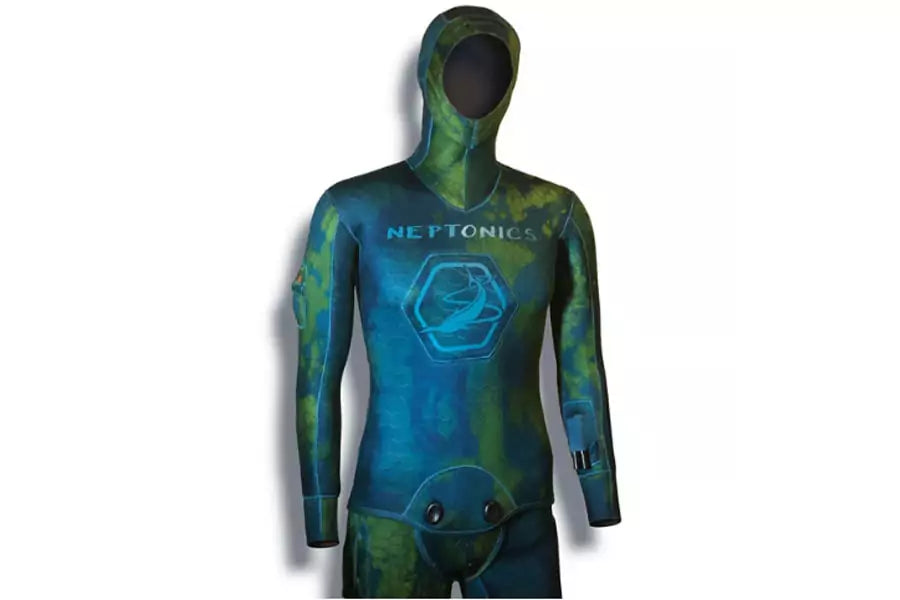
Open Cell vs. Closed Cell Wetsuits: What’s Better for Freediving?
Freediving assumes the need for gear that mixes warmth with flexibility and comfort. A wetsuit comprises a significant portion of this equipment, where the difference between open cell and closed cell wetsuits fades away with actual performance underwater. A beginner and an advanced-level freediver can make an informed decision if they understand how each kind of suit works.
What is an Open Cell Wetsuit?
An open cell wetsuit has the neoprene left untreated or raw and uncoated. This treatment lets the suit cling hard to the wearer's skin, preventing water from flowing; as one may put it, it is almost like a near vacuum. This tremendous closeness gives excellent insulation, putting open cell wetsuits in colder suits for longer dives.
Since the suit fits very tightly, an open-cell suit offers greater thermal protection, which is appropriate for situations where you are freediving in deep or colder waters. Yet, one needs to be coordinated in putting it on, as it is delicate to put on or take off. Most divers use soapy water or lubricant not to tear the inner lining when sliding into the suit.
What Are Closed Cell Wetsuits?
Closed cell wetsuits are commonly known by the average casual water sportsperson. These suits have a fabric lining on the exterior and interior surfaces so that they can be easily worn without lubrication. The lining of these wetsuits causes durability but diminishes sealing against the skin more, allowing water to enter and circulate more freely. Less in insulation, these closed-cell wetsuits are less suitable for cold-water conditions.
On the other hand, they seem more durable against the nail, rock, or bad handling. For this reason, closed cell wetsuits are suitable for recreational divers, surfers, or those diving in warm waters.
Reasons Why Freedivers Favor Open Cell Wetsuits
Freedivers typically favor open cell wetsuits, and for a handful of good reasons:
-
Thermal Insulation: Open cell wetsuit will keep as little water as possible as it molds itself directly to the skin. Less water equals less body heat that is lost, which is crucial in long dives.
-
Flexibility and Comfort: Because the open cell jacket has the bare skin as an inner lining, the internal fabric lining presents resistance to keep freedivers feeling closer to a second skin.
-
Increased time keeping warm: Being a thermal-efficient wetsuit, perspiring divers keep warm longer to remain in the water.
-
Better Gliding Ability: The better the seal of an open cell wetsuit, the less drag along the drain, increasing the soldier's gliding ability.
Neptonics, a brand known best for spearfishing and freediving equipment, stands by open cell wetsuits for the real freedivers who want performance and warmth first and foremost. These high-end wetsuits are constructed from the finest neoprene, offering the best comfort and flexibility possible.
Downsides of Open Cell Wetsuits
Though open cell wetsuits are the choice of thousands of divers who wish to take advantage of the benefits of their performance, these suits do have some negatives:
-
Fragility: That method of raw neoprene is much more prone to being torn and punctured.
-
Hard to Put On: Unlike closed cell wetsuits, an open cell cannot be pulled on dry. You will need to lubricate yourself to glide into the suit.
-
Maintenance: Avoid any damage or buildup of bacteria by rinsing and drying these wetsuits with great care every single time after use.
However, freedivers put the benefits at a higher value than the drawbacks, especially when equipped with Neptonics.
Are Closed Cell Wetsuits Better?
Still, closed-cell wetsuits may not give in thermal insulation to open cells but certainly have their place in the diving world:
-
Durability: Highly recommended in rocky or coral-heavy environments in which those situations concern damage to the suit.
-
Ease of Use: No lubrication is used here. Just zip up and dive off.
-
Cost-Effective: Closed-cell wetsuits will be less expensive than open-cell, which is essential for any newbie diver.
Versatile: Depending on the casual snorkeler, surfer, or scuba diver, these suits will work well in warm tropical water.

What Does Neptonics Suggest?
We have long been a leader in spearfishing and freediving gear. Their experienced team recommends open cell wetsuits to intermediate to advanced freedivers, valuing performance, insulation, and fit. The open cell suits made by us are designed for maximum flexibility and warmth, and many users claim that they have taken them on cold dives with sheer comfort.
We also offer rugged, closed-cell wetsuits for the recreational or newer diver that will protect new divers at an affordable price and convenience if you are new to diving.
We guarantee that every wetsuit has been tested for quality, performance, and durability, regardless of diving level.
In Closing: What Wetsuit to Buy?
Ultimately, it concerns your needs regarding the debate between open-cell or closed-cell wetsuits.
Choose an Open Cell wetsuit if you:
-
Dive in colder waters
-
Want maximum warmth and flexibility
-
Can work with a somewhat more fragile gear
Choose a Closed Cell Wetsuit if you:
-
Dive in warm or temperate conditions
-
Like convenience and ready-to-use
-
Need one that is rugged and can take tough polishing times.
These wetsuits are the best as it helps you achieve your dive goals, and makes your underwater life easier!
